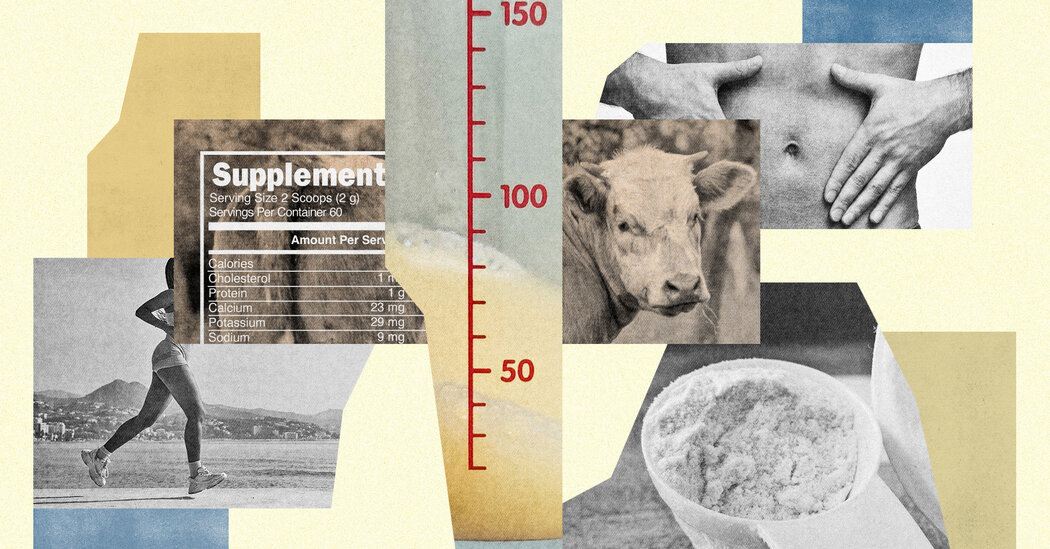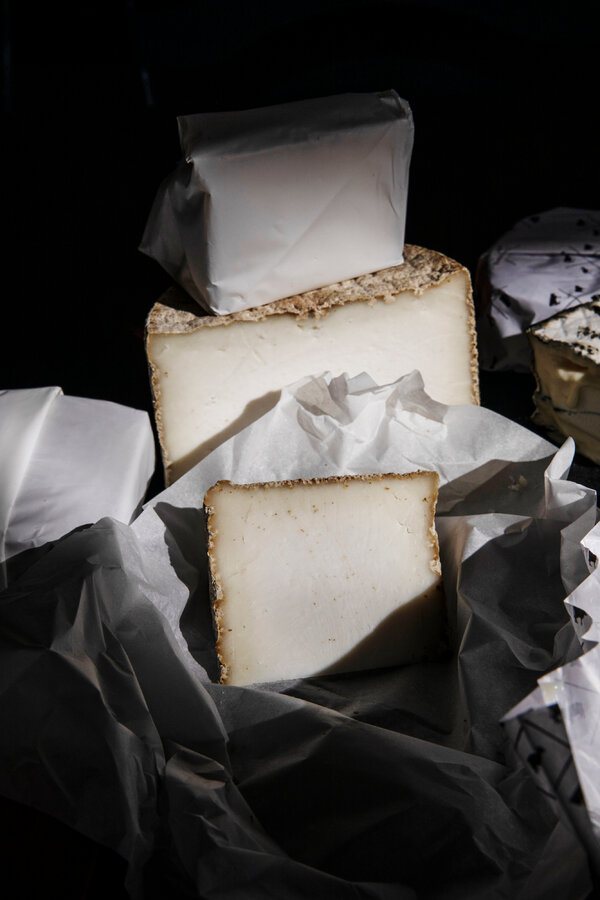Colostrum, the milk-like substance produced by mothers in the first few days after giving birth, provides antibodies, antimicrobial proteins and other vital nutrients to newborns across the mammalian world.
For babies in the fragile first days of life, “it’s liquid gold,” said Jennifer Smilowitz, an assistant professor at the University of California, Davis, who studies lactation science.
Several companies are now selling colostrum from cows as a supplement for humans, claiming it can help regulate the immune system, improve digestive health, support skin regeneration, speed recovery after exercise and much more.
Here’s what experts said about those claims.
The potential benefits of bovine colostrum
Much of the research so far on bovine colostrum, which can be taken as a pill, powder, liquid or an enema, is focused on how it affects gut health.
In a trial involving 160 children with recurrent diarrhea, those who took bovine colostrum supplements had less diarrhea or vomiting after two days than those who took a placebo. There have also been early results that suggest the supplement may be able to reduce abdominal pain in people with colitis and reduce diarrhea in adults with H.I.V./AIDS and in children with autism.
Experts said it’s not entirely clear how exactly the supplement might help with gut issues. Some studies suggest that it can help maintain the integrity of the gastrointestinal system and make the gut less permeable, which might reduce digestive issues in some people. In newborn mammals, colostrum’s high levels of antibodies help fight off infection and reduce gut inflammation, and it contains growth factors that are critical for sealing and strengthening the developing intestine, Dr. Smilowitz said. But there is no evidence yet to suggest that bovine colostrum supplements would work the same way in adults.
In another paper, researchers reviewed the findings from seven trials that included 445 participants and found that bovine colostrum supplements might also decrease the risk of upper respiratory tract infections. It’s possible that colostrum supports the regeneration of mucous membranes in the upper airway, or that it provides antibodies that help certain immune cells kill other cells infected with a virus, according to the authors of the review.
This paper and certain other studies on the benefits of colostrum, including the research in children with autism and on colitis, were funded or conducted in part by supplement makers, or run by researchers with links to colostrum supplement companies.
Dr. Per Sangild, a professor of comparative pediatrics and nutrition at the University of Copenhagen who has studied bovine colostrum, said he would like to see more data on how bovine colostrum affects the immune system. (Dr. Sangild has a patent for the use of bovine colostrum for preterm infants, but has declined any share of profits from it.) While human colostrum provides extra immune defenses in newborns, that might not be what a healthy adult needs, he said. And it could carry risks, he said, especially if it dampens a certain immune response and inhibits the body from fighting off bacteria.
In studies also supported by supplement makers, cyclists taking bovine colostrum had improved performance, and soccer players recovered more quickly from exercise, compared to peers on a placebo.
There’s no rigorous, published data yet to back up claims that the supplement can support skin regeneration, lead to weight loss or reverse age-related changes. And experts said that even the studies that have been done provide only limited evidence: While some report positive findings, others have failed to replicate the observations or found no benefit. It would take much larger and longer trials to prove real benefits — and rule out any adverse effects from long-term use.
“We don’t know what happens three weeks, four weeks, half a year later,” said Dr. Sangild.
Safety and oversight concerns
To make the supplements, colostrum is collected from cows within three days of giving birth and is then frozen, pasteurized and turned into a powder.
But the heat used in sterilization “can destroy part of the good things that are in the product,” Dr. Sangild said, meaning that even if there are beneficial elements in bovine colostrum, they may not end up in supplements. There also aren’t standard manufacturing processes for these products. One study of 20 bovine colostrum supplements sold for human use found wide variations in the effects that the supplements had on cells.
As supplements, bovine colostrum products do not need approval from the U.S. Food and Drug Administration, and quality control is left to manufacturers.
“The laws regulating supplements are not up to the challenge of regulating complicated chemical mixtures like bovine colostrum,” said Dr. Pieter Cohen, a physician at Cambridge Health Alliance who studies supplements.
“It’s an interesting compound to explore,” he said, “but right now, it’s not ready for prime time.”
Dr. Smilowitz said that she is hopeful that bovine colostrum could help certain patients with immune or gut issues. But without more data or oversight, she said, people interested in it should “be cautious” and start by talking to their doctors.







